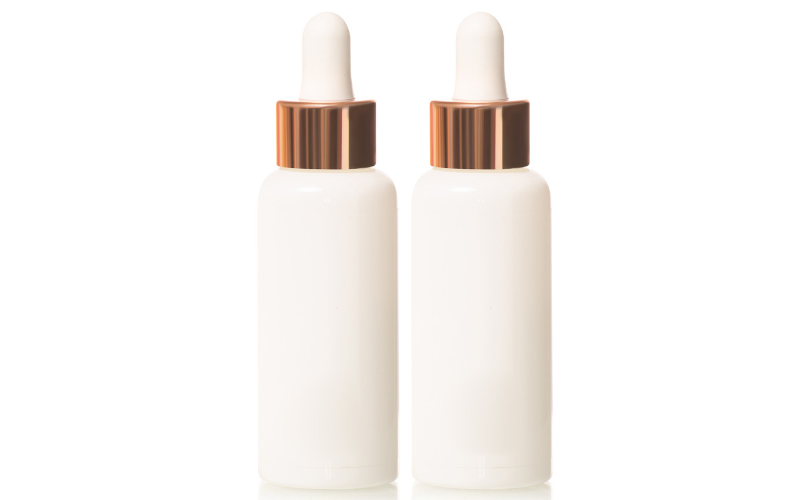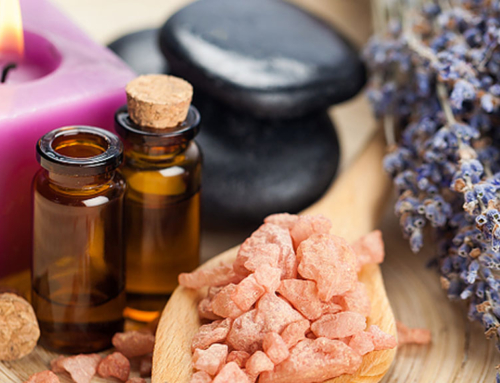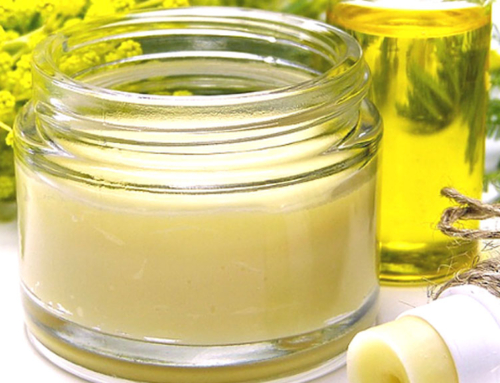Hyaluronic acid (HA) is a widely recognized ingredient that many consumers now look for in topical moisturizing creams. It is in many expensive anti aging serums. However, marketing claims about this ingredient can be very misleading, as its effectiveness depends on a number of factors. This article explains the science behind how and when hyaluronic acid can be used as a moisturizer.
What Is Hyaluronic Acid?
Hyaluronic acid is a type of naturally-occuring sugar known as a glycosaminoglycan (GAG) that is found in abundance in young human skin. The amount of HA in the skin diminishes as we age. HA is produced within the dermis by specialized skin cells called fibroblasts. HA has the ability to bind to and retain up to 1,000 times its weight in water. Because of this property, HA gives skin its plumpness, volume and smooth, youthful texture.
Topically applied HA needs to be small enough in order to penetrate the epidermis. Otherwise, it stays on the surface and acts as a humectant. Once inside the skin, uncrosslinked (single stranded) HA is broken down in about 24 hours by a naturally occurring enzyme known as hyaluronidase. In injectable forms (dermal fillers), HA molecules are crosslinked to each other to form a mesh or ladder shape, which can last for months before being broken down by hyaluronidase.
What Is Hyaluronic Acid Used for in the Skin?
Hyaluronic acid is what is in many dermal fillers, like Restylane® and JUVÉDERM®. In an injectable form, HA temporarily smooths away fine lines and wrinkles, restores lost facial volume in your cheeks, and can add volume to your lips. HA fillers have been formulated to last for six months or more, but their effects will gradually fade away as your body breaks down the HA. One of the perks of using HA fillers is that they can be dissolved with an enzyme called hyaluronidase, so you do not necessarily have to wait for them to break down on their own if you are unhappy with your filler results.
How Do the Various Hyaluronic Acid Moisturizers Differ?
Think of HA as a linear chain of sugars. The molecular weight depends upon the length of the chain. Shorter single stranded chains have a lower molecular weight than longer single stranded chains. The molecular weight of HA in skin care products varies, and the attributes that the moisturizer has depends upon:
- The molecular weight of HA in the product
- The amount of HA in the product
- If the HA is single stranded or crosslinked like a ladder or mesh
- If the product contains a combination of different molecular weights of HA
- The form of HA in the product. You may see the following:
- Sodium Hyaluronate Crosspolymer
- Hydrolyzed Hyaluronic Acid
- Sodium Hyaluronate
- Nano HA
- Crosslinked HA
- Uncrosslinked HA
- Encapsulated Hyaluronic Micro-spheres
Most moisturizers are made of more than one type of HA. SkinMedica’s H5 Hydrator has five types of HA in it. I choose the brand of HA based upon the patient’s Baumann your skin type®.
Is Hyaluronic Acid an Effective Moisturizer?
HA acts as a humectant, meaning that it draws moisture into itself. There are some caveats to using topical hyaluronic acid as a moisturizer that you need to consider because a barrier repair moisturizer might be a better choice if you are a dry your skin type.
If you are a dry your skin type like DSNW, DRNW, DSPW, or DRPW you need to consider the environment that you live in as well as your Baumann your skin type®. Humectants like HA pull in moisture from the atmosphere, so they can be beneficial moisturizing ingredients to use in a humid environment. However, if you have very dry skin and are in a dry environment, HA can dehydrate your skin by drawing available moisture from your skin. This actually dehydrates your skin. If you have dry skin and live in a dry climate, HA needs to be combined with a product containing an occlusive ingredient to seal moisture into the skin. My favorite is argan oil.
People with oily your skin types like OSNW, OSPW, ORPW and ORNW are able to use HA as a moisturizer in any environment since the sebum (oil) on their skin acts as a natural occlusive.
The effectiveness of topical hyaluronic acid will depend on its formulation and what type of HA is in the product. As mentioned above, HA molecules need to be small enough in order to penetrate the ski, but large enough to bind to water. The large HA strands coat the layers of the epidermis and they will not be able to penetrate into the dermis. The smaller strands may be able to penetrate into the dermis, but they will be broken down in about 24 hours. Some forms of HA are crosslinked so that they will not be broken down quickly, but these stay on the skin’s surface and do not penetrate. Thus, the effects of topically applied HA will be temporary. They can make the skin look better, but do not cause any permanent improvement of the skin the way that retinoids, ascorbic acid, glycolic acid, myristoyl/palmitoyl oxostearamide/arachamide mea, and barrier repair moisturizers can.
Hyaluronic Acid Increases the Penetration of other Cosmeceutical Ingredients
Topically, hyaluronic acid can increase the absorption rate of other ingredients, which can be good or bad, depending on the ingredient and desired outcome. For example, HA can increase the side effects of benzoyl peroxide and retinoids, but it can also increase the efficacy of ingredients that have trouble penetrating, such as peptides. The order that products are placed on the skin is critical because every product affects the product efficacy of the products used before and after it. (I call this product layering. Click here to learn more about product layering.)
Do Hyaluronic Acid Supplements Work?
You can find oral hyaluronic acid supplements, but they aren’t worth your time or money. Your stomach breaks down the HA molecules, making these supplements useless to your skin. However, glucosamine supplements are a great idea! Glucosamine and chondroitin supplements help your skin to produce more HA on its own. In fact, HA functions as a lubricator in joints, which is why orthopedic surgeons recommend glucosamine/chondroitin supplements for joint pain.
In Summary
As you can see, using a topical formulation of hyaluronic acid can be tricky, as there are many factors that can determine whether it will be beneficial or detrimental to your skin. For this reason, you should discuss adding a topical HA product to your skin care routine with your dermatologist before spending the large amount of cash that these products cost. It may be that you would be better off with a retinoid or a barrier repair moisturizer.
If you have additional questions about hyaluronic acid skin care or fillers, or to see which topical products are right for your skin type, contact our Miami office online or give us a call at 305-532-5552.
©2018 MetaBeauty, Inc.





